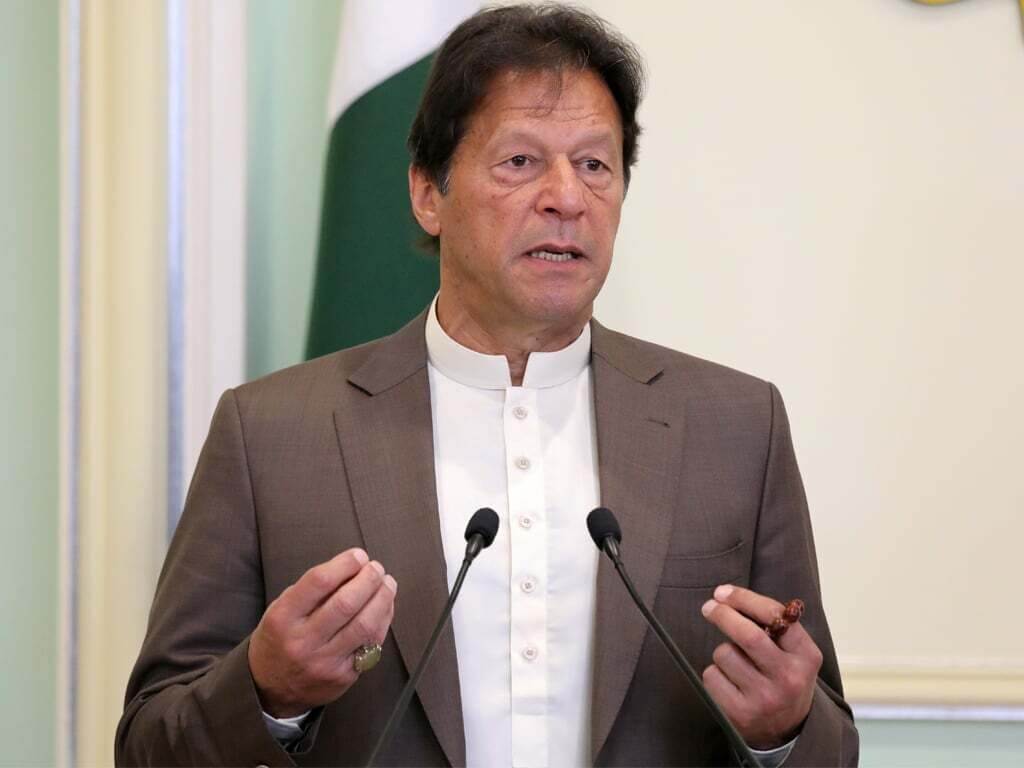Former Pakistani Prime Minister (PM) and Pakistan Tehreek-e-Insaaf (PTI) Chief Imran Khan warned that if the government does not make the right decision and call for elections, Pakistan would be divided into three parts.
In an interview with BOL News, he urged the incumbent government to announce “legal and constitutional” elections, failing which he warned of a civil war. He warned that the country is on the brink of “suicide” or “self-destruction” and that the army would be the first to be destroyed if the right decisions weren’t made. He claimed that Indian think-tanks are already preparing to “separate Balochistan.”
Citing the example of the USSR’s break-up in the 1990s, he said that Pakistan, too, would be asked to denuclearise just as Ukraine was. He also used Nigeria as an example, highlighting that despite it being a resource-rich country with access to oil reserves, corruption has driven it into poverty.
Khan’s incendiary remarks were condemned by former President Asif Ali Zardari, who said, “This language is not of a Pakistani but of [Indian PM] Modi. Imran Khan’s power is not everything in the world, be brave and learn to stand on your feet and do politics now.”
Similarly, Pakistan People’s Party leaders and Federal Minister Syed Khursheed Shah also said that the statement was indicative of Khan’s “anti-Pakistan agenda” claimed it would force his closest aides to leave his side.
“9th April night will always be remembered as the night when our country suffered the most.”-@ImranKhanPTI #امپورٹڈ_حکومت_نامنظور #IKonBOL pic.twitter.com/A85CHi3Hxh
— PTI (@PTIofficial) June 1, 2022
During the interview, Khan also claimed that his powers as the PM were “clipped” by “certain quarters,” making a veiled reference to the army’s influence over the civilian government. “Our hands were tied. We were blackmailed from everywhere. Power wasn't with us. Everyone knows where the power lies in Pakistan, so we had to rely on them,” he said.
Khan said that while the army did do “a lot of good things too,” as the PM he had all the responsibility but “no complete power and authority.” He stressed that there isa need for a “strong army” but also one for a balance between the armed forces and the civilian government.
“The people cannot be stopped now. We have only one demand and that is elections.”-@ImranKhanPTI #امپورٹڈ_حکومت_نامنظور pic.twitter.com/YQgkmeKUjb
— PTI (@PTIofficial) June 1, 2022
When probed about whether PTI members’ plan to honour their earlier pledge to step down as Members of the National Assembly if Khan were ousted via a trust vote, Khan said they still intend to do so. Given that it has been nearly two months since Khan’s removal however, questions are circling about whether they have reversed their position.
Khan further claimed that the “thieves” within the incumbent government that had plundered Pakistan for decades. He also reiterated his claim that the PM Shehbaz Sharif-led coalition is an “imported government” that answers to the United States and Israel.
“What disappointed me the most was that corrupt people have been imposed on us again. This is the biggest joke with our country.”-@ImranKhanPTI #امپورٹڈ_حکومت_نامنظور #IKonBOL pic.twitter.com/nmo7QX2FlC
— PTI (@PTIofficial) June 1, 2022
On the same day, Khan addressed a social media conference in Peshawar and discussed the turn of events during the Azadi March last week, which saw violent clashes between protestors and security forces across the country. Khan previously gave the government six days to announce fresh elections, failing which he vowed to return “with the entire nation” to D-Chowk, where he had planned to organise an indefinite sit-in. However, the ultimatum expired on Tuesday with no announcement about upcoming elections from the government. In this regard, Khan said that he has approached the Supreme Court to seek protection from security forces before launching launching another march.
Meanwhile, the Supreme Court has urged the police and the Inter-Services Intelligence to submit reports on the PTI’s allegation of “state torture.”

